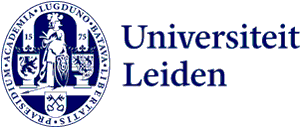
How chemist Marc Tijhuis left business to change the world
Halfway through his career alumnus Marc Tijhuis made a radical change: he left the corporate world to join the global battle against waste with the International Solid Waste Association.

He feels a bit nostalgic, he says, as he cycles through a buzzing Leiden and sees an endless procession of groups of first-year students getting to know each other and the city. His student life took a bit longer to get going, he says at a pavement café on Rapenburg canal. ‘I only joined an association in my third year, Quintus, because I hung around in the alternative scene in my hometown of Rotterdam for a while – with black eyeliner under my eyes. That disappeared in Leiden,’ he laughs.
His parents were initially a bit sceptical about him choosing a tough university degree. ‘I was a C student at school. Or to put it in more positive terms: I bumbled my way through with minimal effort. But chemistry was my favourite subject, thanks to a great teacher, Mr Janssen, whose lessons were fantastic. After I graduated I sent him a letter thanking him for inspiring me to study chemistry.’

All-nighters
The degree was tough but after his first 9 for an exam on everyday chemical processes like striking a match he began to get the hang of it. His motto was: work hard, play hard. ‘Chemistry’s really intensive, sometimes with 32 hours a week in the lab. I worked nights on the conveyor belt at Johnson-Wax in Mijdrecht. I’d get back to Leiden at about two in the morning and would go straight to Quintus until seven in the morning and had to go to lectures again soon after.’
His first job was as a medical sales rep. ‘It helped that as a chemist I quickly understood the information on the medicines, which made it easier to explain them. My academic training’s been useful all my life. I don’t take anything at face value and always dare to ask more questions.’ Tijhuis spent the first half of his career in sales and marketing jobs in the pharmaceutical world and the food industry. He began to get itchy feet in his late 30s and no longer felt at home in the commercial world. ‘I realised that at the top it was hardly about the products and customers at all but was all about the share price and making money.’
‘For long, waste management wasn’t a sexy topic and wasn’t taken seriously. You often need a major crisis to bring about real change.’
Leaving the rat race
His critical attitude was not appreciated and at the age of 39 he had to quit his job at a major food manufacturer. High time for reflection: ‘I was fed up with the rat race and corporate world and took a sabbatical. I spent six months travelling around Central America with my wife and three young children. That gave me time to think properly about what I wanted to do with the second half of my career. I wanted to make the world a better place and decided to switch to not-for-profit organisations.’ Tijhuis found a job as a manager at the Dutch Heart Foundation and then became director of Wereldkinderen, an organisation that mediates in adoption and supports projects that give vulnerable children the chance to grow up in a family in their own country. ‘That’s where I learnt how to be in the limelight as an organisation and a person. I often had to speak to the media and deal with difficult cases because adoption is a sensitive topic.’

Switch to waste management
He is now managing director of the International Solid Waste Association (ISWA), which has its head office in Rotterdam and has been promoting sustainable waste management for over 50 years. Tijhuis: ‘For long, waste management wasn’t a sexy topic and wasn’t taken seriously. You often need a major crisis to bring about real change. We believe in an earth with as little waste as possible.’ A small international team, they encourage knowledge transfer among members, such as researchers from universities, governments and NGOs. ISWA holds conferences and meetings about sustainable waste management and participates in climate conferences. The team also coordinates working groups, such as one on landfill rehabilitation in developing countries.
Effects of climate change
The transition is starting to happen now the effects of climate change are so painfully obvious. ‘Landfill, for example, enormously increases harmful gasses that cause air pollution and global warming. In many countries lots of people work and even live on such rubbish tips. That really has to change and the UN is asking us to help.’ His degree also helps him in the world of waste management. ‘I often understand technical discussions about things like the release of harmful gasses. But you don’t have to be a chemist to focus on this. I’ve noticed that for my three children, who are students, sustainability is much more of a given than for my generation of students back then. Our generation started the transition but our children’s generation will bring about the really big changes.’
Text: Linda van Putten
